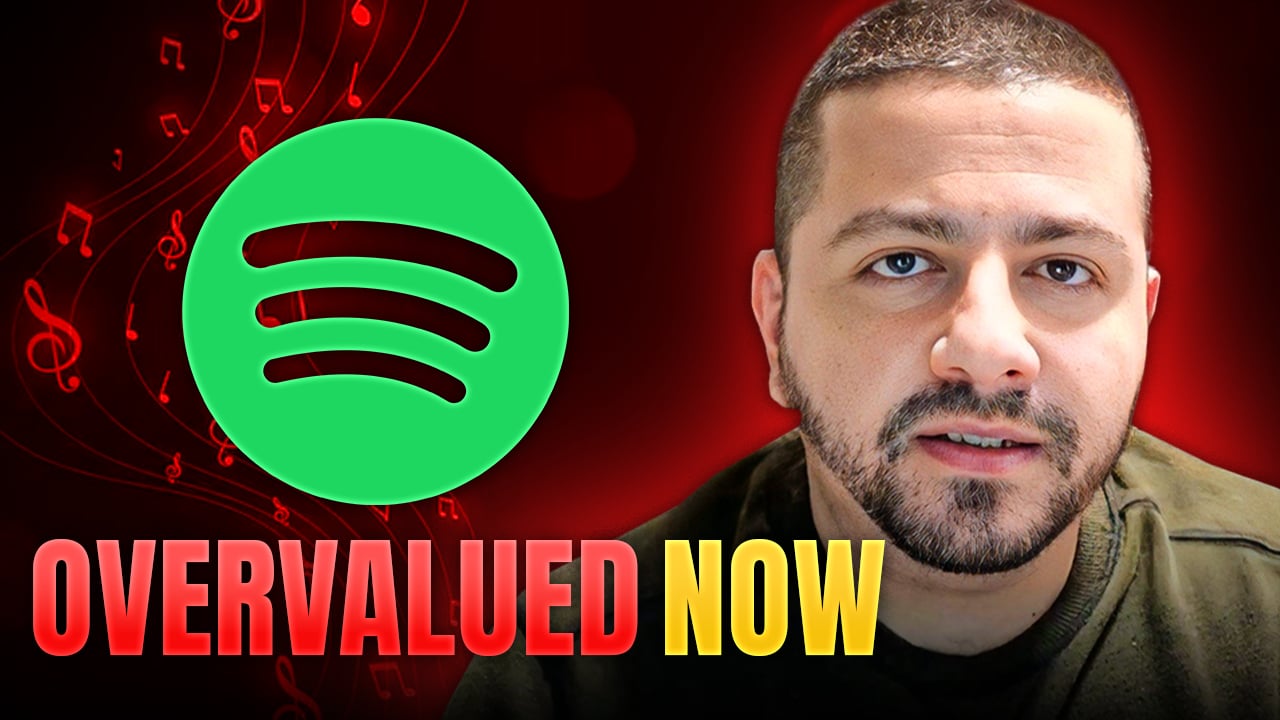We all love our streaming services, and earlier this month, the biggest music streaming service in the world -- Spotify (SPOT 5.50%) -- sold shares to the public in a direct listing. While I love streaming music (it's a former Grateful Dead tape collector's dream), as an investor, I won't be buying shares of Spotify for the foreseeable future. Here's why.
1. Hot consumer names are dangerous
Spotify is a very popular consumer product, which I think sets it up to be overpriced. Other recent "hot" consumer-facing IPOs such as Snap and Blue Apron have underperformed since going public, with the latter being a total disaster.
While Spotify is only now being publicly traded, its shares had been valued in private funding rounds throughout 2017 in a range between $37 and $125 per share. At a price of nearly $150 as of this writing, you're still paying almost four times the lowest price paid in recent history and above anything paid in those private transactions.

Can Spotify grow into its valuation? Image source: Spotify.
2. Supplier Power
"Supplier power" is a term used by Harvard professor Michael Porter in his "5 Forces" framework of industry competition, and it's a potential danger for Spotify. Suppliers provide key inputs to a business. For instance, a cereal company has to buy grain from grain farmers. Thus, if there were only one grain producer in the whole world, it would be able to dictate high prices to the cereal maker.
In Spotify's case, its "supply" comes from just a handful of big record labels: Universal Music Group, Sony Music Entertainment, Warner Music, and Merlin, which is a consortium of independent labels. These four major labels make up 87% of all streamed music. While current performance licensing rates have already been negotiated through 2022, it's possible these could be modified in the near-term (according to Spotify's registration statement), and who knows what will happen in the upcoming negotiations in just a few years.
If licensing rates go up, my next concern will be even more important.
3. No pricing power
Spotify is often compared to Netflix due to its similar subscription price, global scale, and leading position in the streaming category. However, there are some key differences.
Importantly, Netflix's success has hinged a lot on its investment in proprietary content, and while these heavy investments have weighed on profits, they have also allowed Netflix to gain loyal subscribers and raise prices several times over the past few years.
Spotify, by contrast, doesn't have any proprietary content, and its average revenue per user (ARPU) has actually declined each of the past two years, from 6.84 euros in 2015 to just 5.32 euros in 2017. That could be due to the growth of company's generous family plan, which allows unlimited streaming for up to five members for just $14.99 per month.
Therefore, if the labels demand higher performance rights fees in 2022, I'm skeptical Spotfiy could raise its prices to offset this impact.
4. Competition
Another weight on pricing power is the fact that Spotify is competing against huge companies, all of which charge the same price ($9.99 a month) for unlimited streaming. Apple Music is the largest competitor, but there is also Amazon Music Unlimited (which is only $7.99 for Prime members), Google Play, and ad-supported competitor Pandora Media. Pandora, though struggling, has shown signs of a recovery with its recent purchase of ad-tech firm Ad Whizz and last year's $480 million investment from Sirius XM.
Most of those competitors are hugely profitable and diverse, which means they can potentially use their streaming services as a loss leader to keep customers in their much larger ecosystems. Spotify, as a pure play, doesn't have that luxury.
5. Governance
As with many high-profile tech companies, Spotify's founders have total control of the company. Co-founders Daniel Ek and Martin Lorentzon own 40.2% of the ordinary shares but have also been issued additional securities called "Beneficiary Certificates", which carry extra voting rights, giving Ek and Lorentzon 80.5% voting power. That means public shareholders won't have much of a say in how things go at the company.
The direct listing was also primarily a way for insiders to sell shares, not for capital raising toward a specific internal investment. Therefore, I'm wary the listing was a way for insiders and employees to cash out before things potentially get more challenging.
The verdict
Spotify is an exciting high-growth company, but for those looking to take a bet on the stock, consider these risks. While I'm not ruling out ever owning Spotify at the right price, these factors are keeping me away for now.






